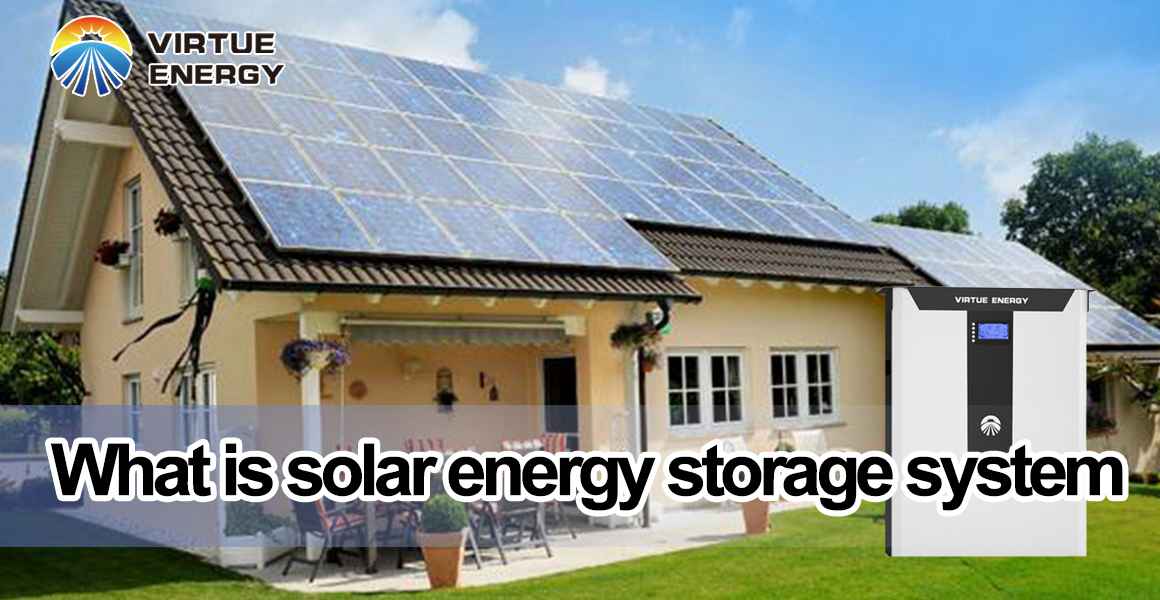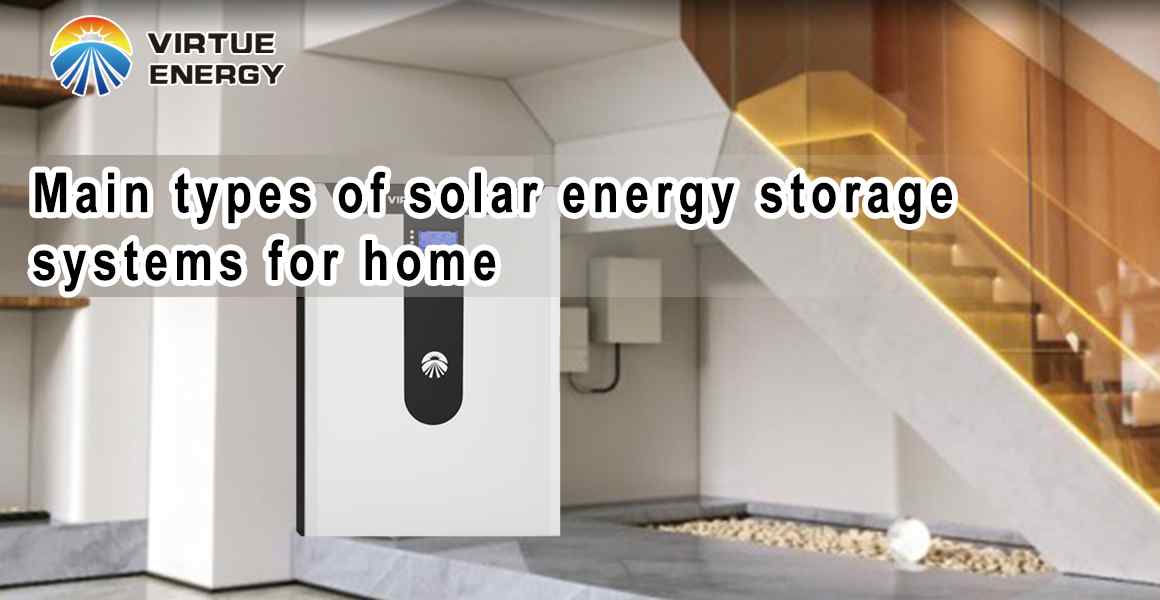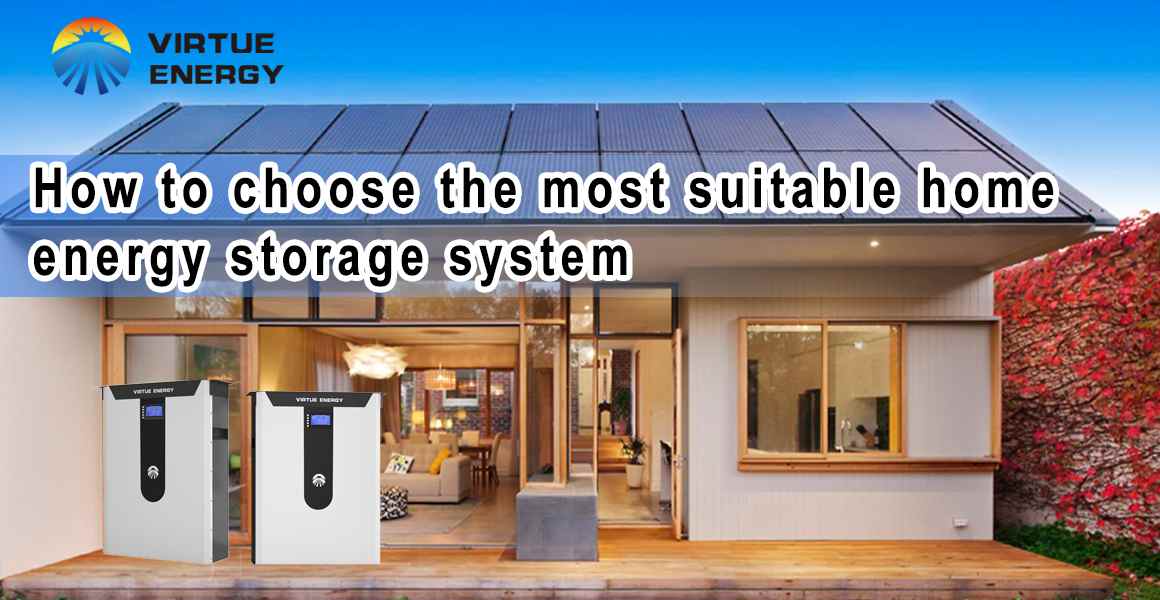With the increasing demand for electricity and the call to reduce emissions, many businesses as well as homes are becoming self-sufficient in electricity through the use of solar energy storage systems. In this post, we’ll give you a brief overview of the types of solar energy storage systems available for your home to help you choose the most suitable one for your application.
What is solar energy storage system

A solar energy storage system is a system that can store electricity converted from sunlight during the day and provide power for household appliances and other devices at night or during a power outage, etc. It mainly consists of batteries, inverters, and other components. It mainly consists of batteries, inverters, solar panels and other components. Depending on the needs of different users, the type of battery will be different. As a manufacturer of energy storage batteries, Virtue can provide you with battery packs, rack mount batteries, and power-wall batteries to meet the needs of different solar energy storage systems.
Main types of solar energy storage systems for home

As one of the most widely used types of solar energy storage systems, battery storage systems can meet the needs of different users in home storage, commercial, hospitals, data centers and other application scenarios. Our 12V 100AH lithium battery and 48V 100ah lithium battery are often used in home energy storage systems. In addition to realizing power self-sufficiency, it can also help users to reduce the cost of electricity. You can use it to store electricity when the electricity price is relatively low and use it when the electricity price is relatively high. In addition, users can use a combination of multiple battery packs according to their needs and actual applications to ensure that the system’s power generation can meet the necessary electricity demand.
Off-Grid
Off-grid home solar energy storage systems rely entirely on solar energy and batteries to store and release electricity, and do not rely on the public power grid. They are widely used on islands, in remote areas or in places not covered by the grid. In order to ensure that the system can power electronic devices at night or when the sun is not shining, a larger capacity battery may be needed to store more power.
On-grid
A on-grid system can be connected to the public power grid. You can sell the excess electricity collected to the grid, thus lowering your electricity bill. At the same time, you can also use the system to store low cost electricity to be used during times of relatively high electricity costs. As opposed to off-grid energy storage systems, it requires relatively low battery capacity and has a relatively low installation cost.
Hybrid system
This type of home storage system is capable of generating power independently as well as being connected to the public grid. It is capable of storing solar-generated electricity to run household equipment, as well as delivering excess electricity to the grid. Moreover, users can realize revenue by storing power from the grid when the price of electricity is low and selling it to the grid when the price of electricity is high.
How to choose the most suitable home energy storage system

When choosing the types of solar energy storage systems, you need to look at the options in terms of cost, space, and type of renewable energy. If you are using it for your home, solar battery storage system is a good choice. It takes up relatively less space compared to other systems. Moreover, you can match the batteries to the average daily household electricity consumption. We can provide you with 5kwh, 10kwh, 20kwh and other power storage batteries to meet your needs.
The cost of solar energy storage systems varies from type to type, as does the cost of maintenance, which should be taken into account when selecting a system. The battery we use in our home storage systems is a lithium iron phosphate battery, which requires no additional maintenance and has a cycle time of up to 6,000 cycles. This means that you won’t have to replace the battery as often, saving you money on maintenance and replacement costs. If you would like to know more about this, please contact us by email. We can provide you with a cost-effective solution for your project.
Conclusion
We hope that this article has helped you in choosing a solar energy storage system. Of course, if you have any questions about the second reason or any other questions about the most common battery storage systems, please do not hesitate to contact us.




